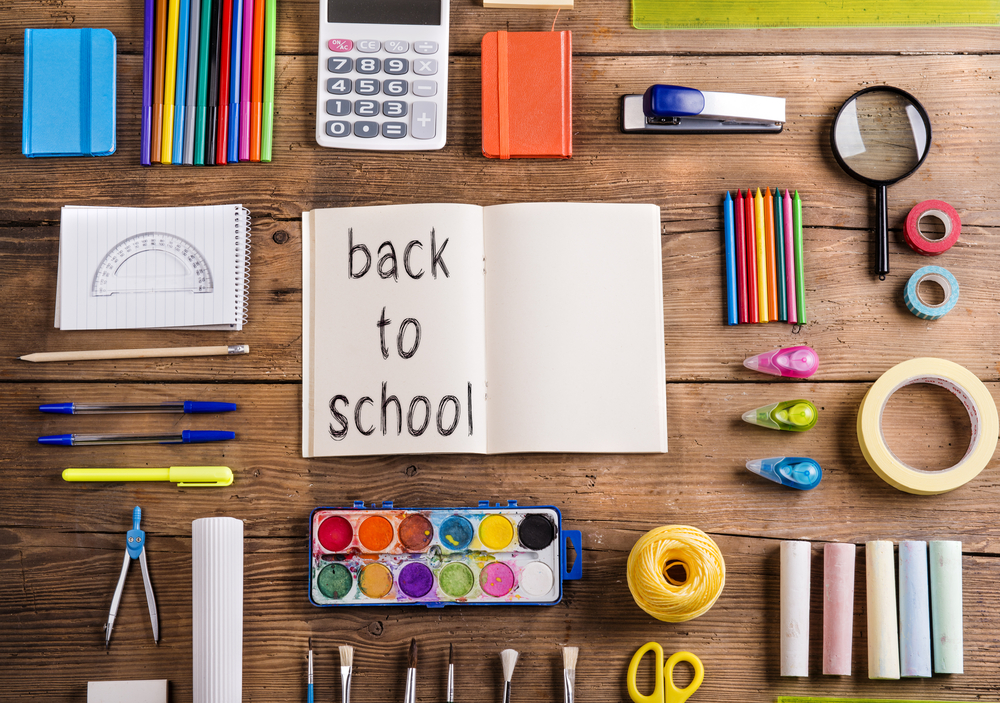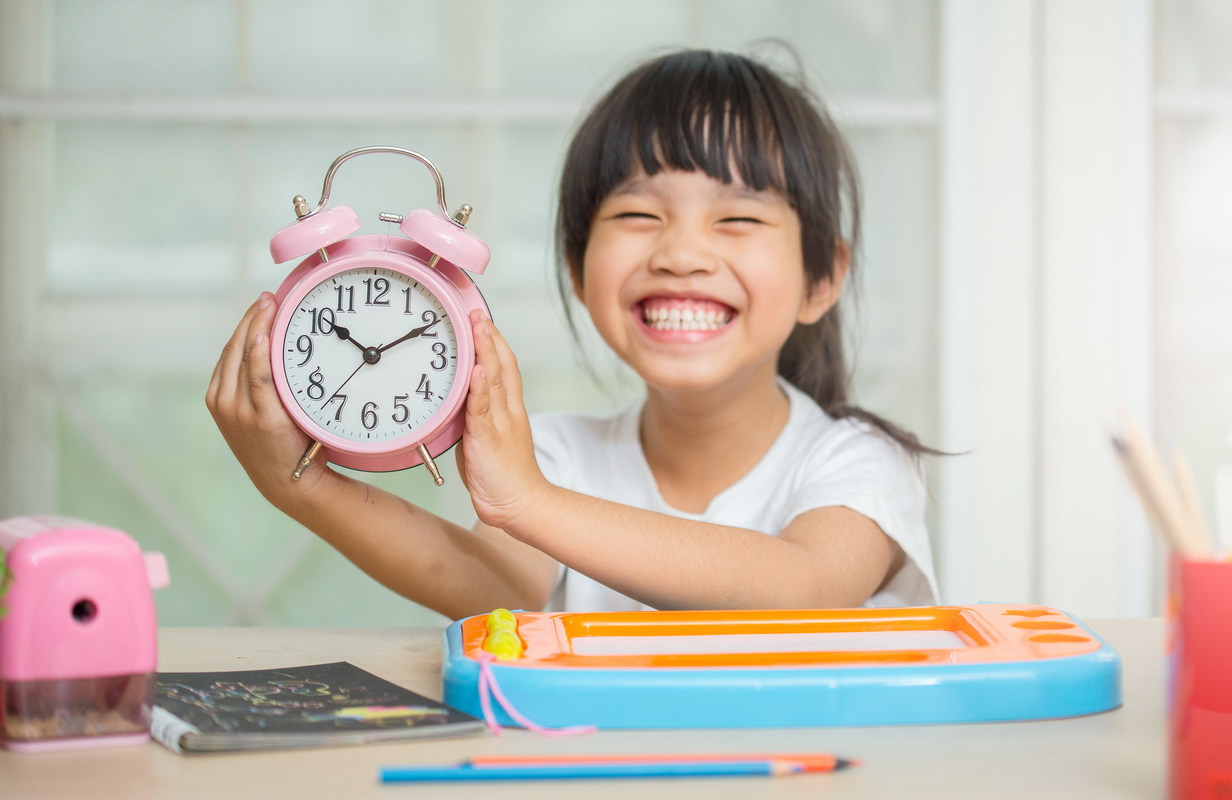Logical Reasoning Normal Reading Worksheets for Ages 5-7
8 filtered results
-
From - To
Boost your child's cognitive skills with our engaging Logical Reasoning Normal Reading Worksheets designed specifically for ages 5-7. These worksheets focus on enhancing critical thinking and problem-solving abilities through fun and interactive activities. Your little learners will explore concepts like patterns, sequences, and categorization while cultivating their reading comprehension. Each worksheet combines logical reasoning with age-appropriate texts to create a well-rounded learning experience. Perfect for home or classroom use, these resources aim to foster a love for reading while supporting cognitive development. Help your child shine academically with our expertly crafted worksheets that make learning enjoyable and effective!
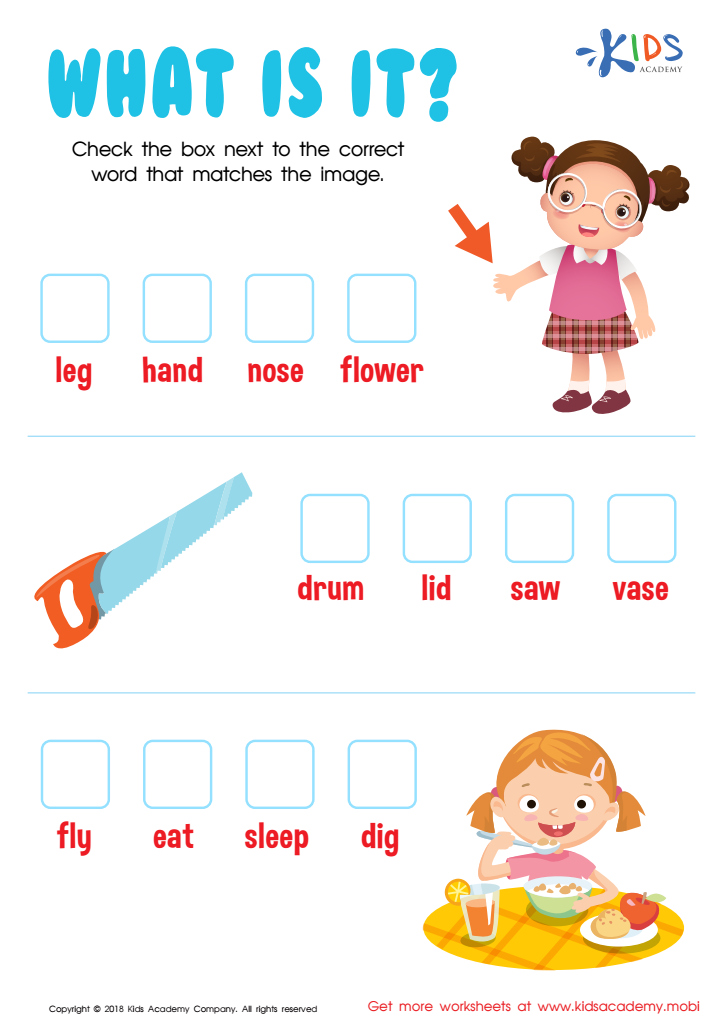

What Is It? Worksheet
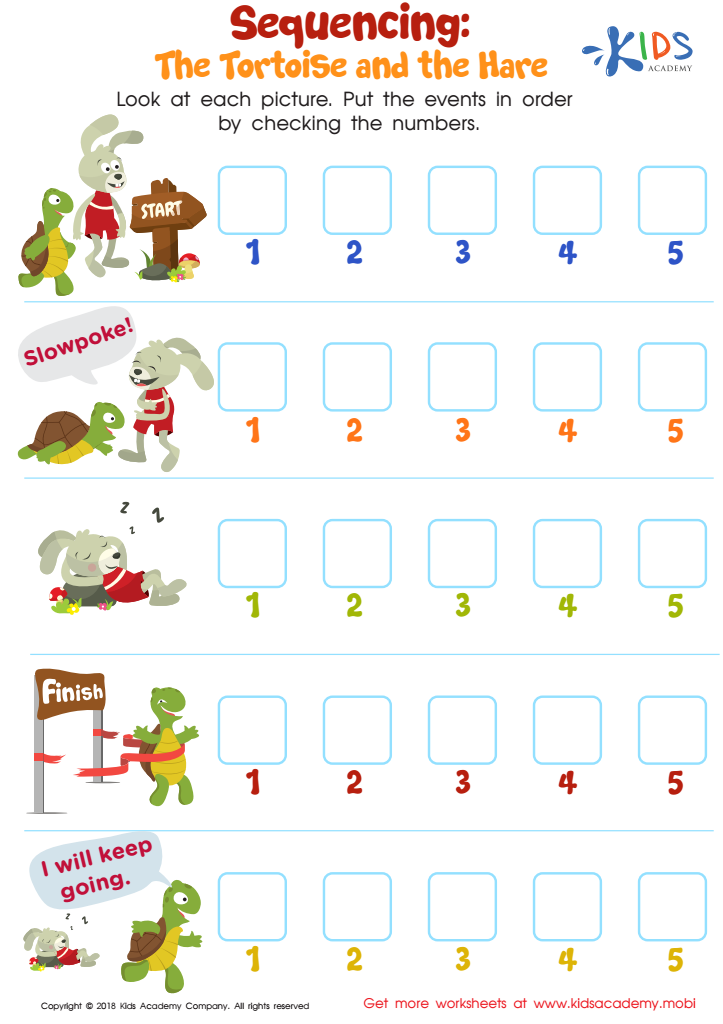

Sequencing: The Tortoise and the Hare Worksheet
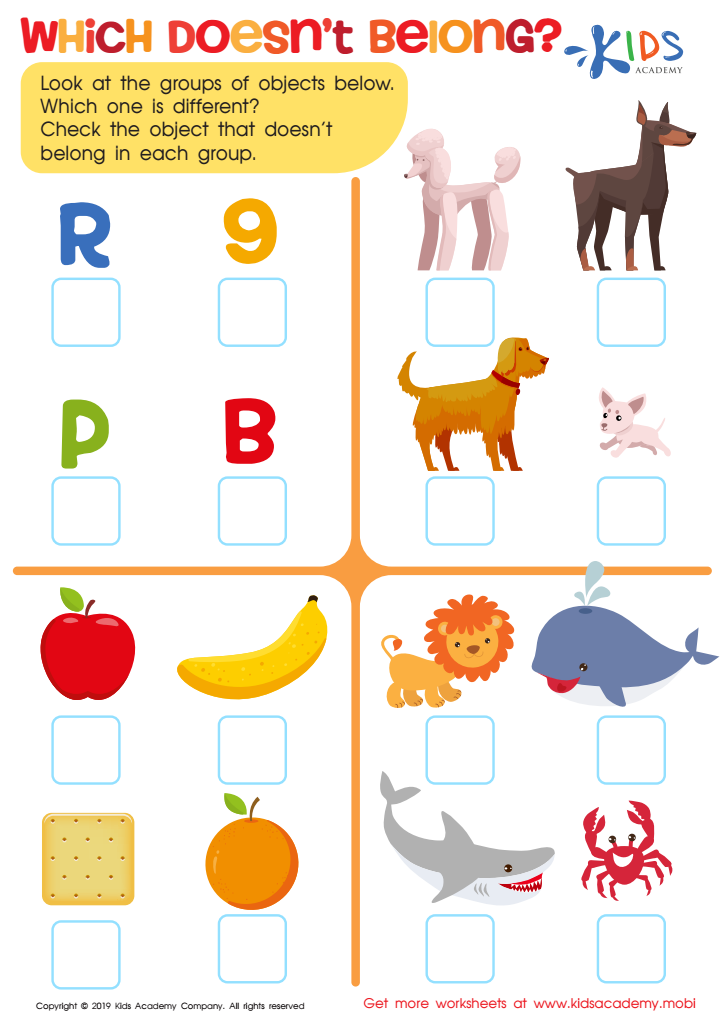

Which Doesn't Belong? Worksheet
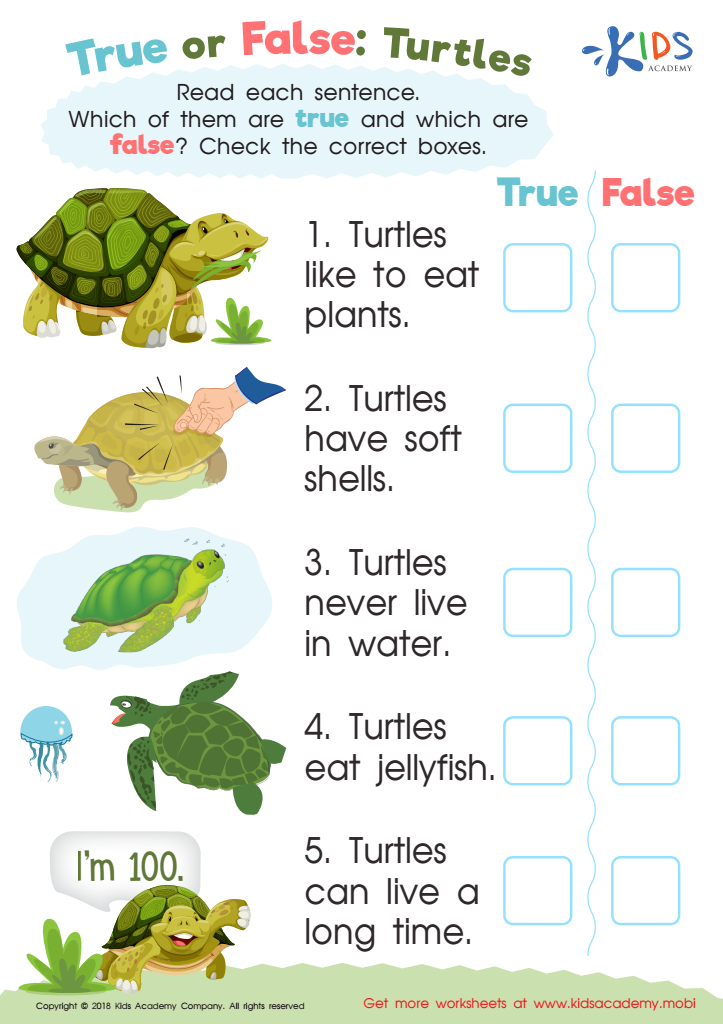

True or False: Turtles Worksheet
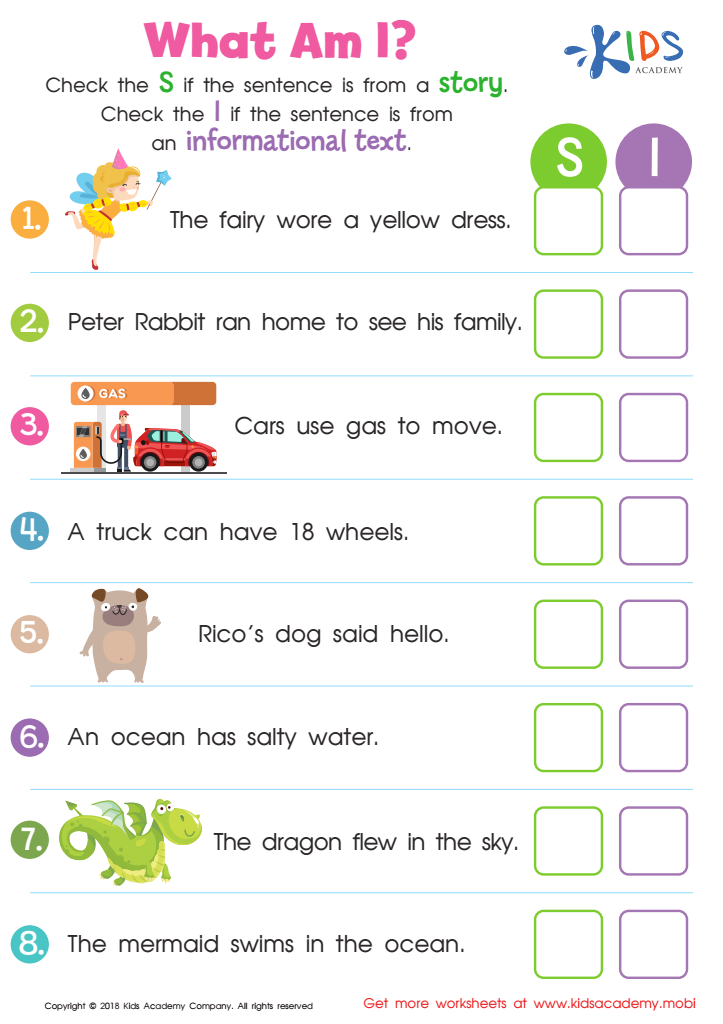

What Am I? Worksheet
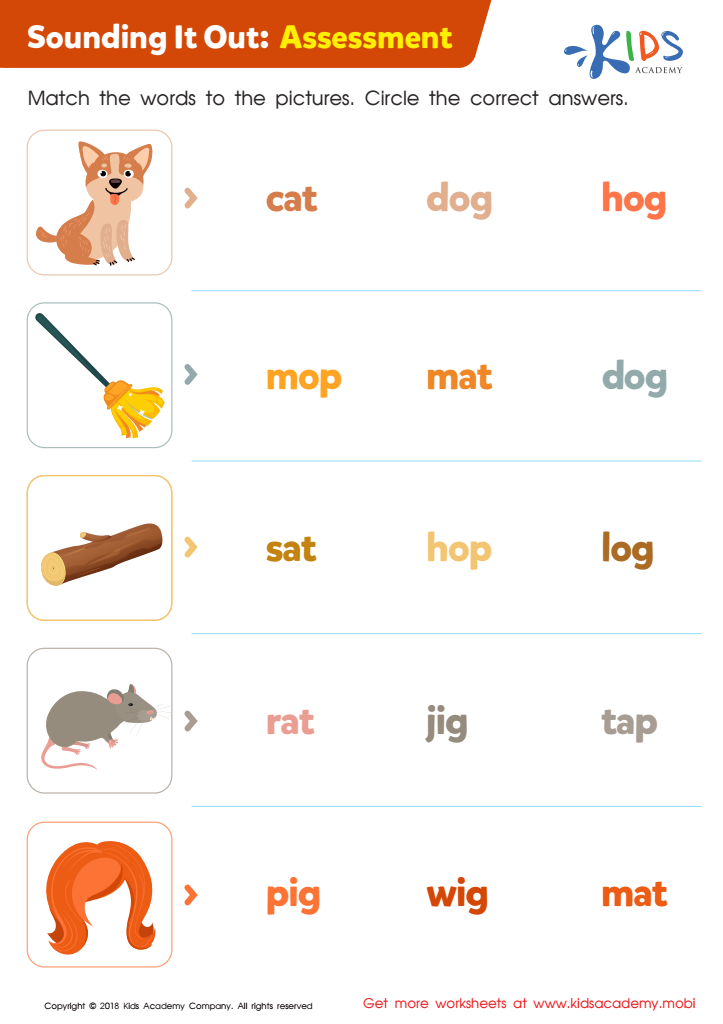

Sounding it Out: Assessment Worksheet
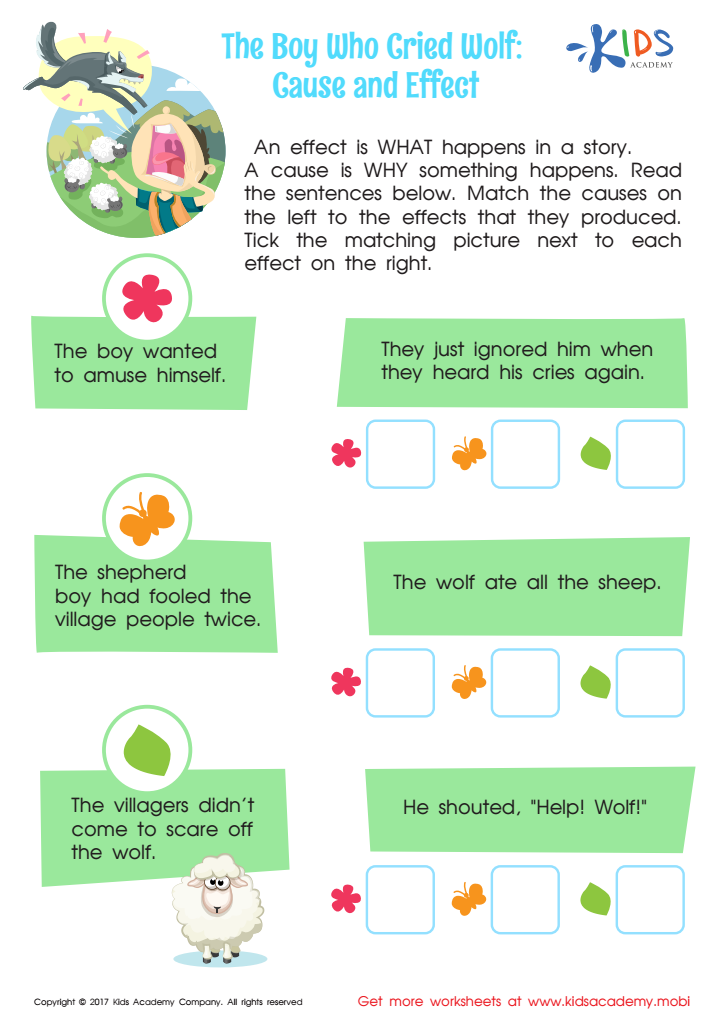

The Boy Who Cried Wolf: Cause and Effect Worksheet
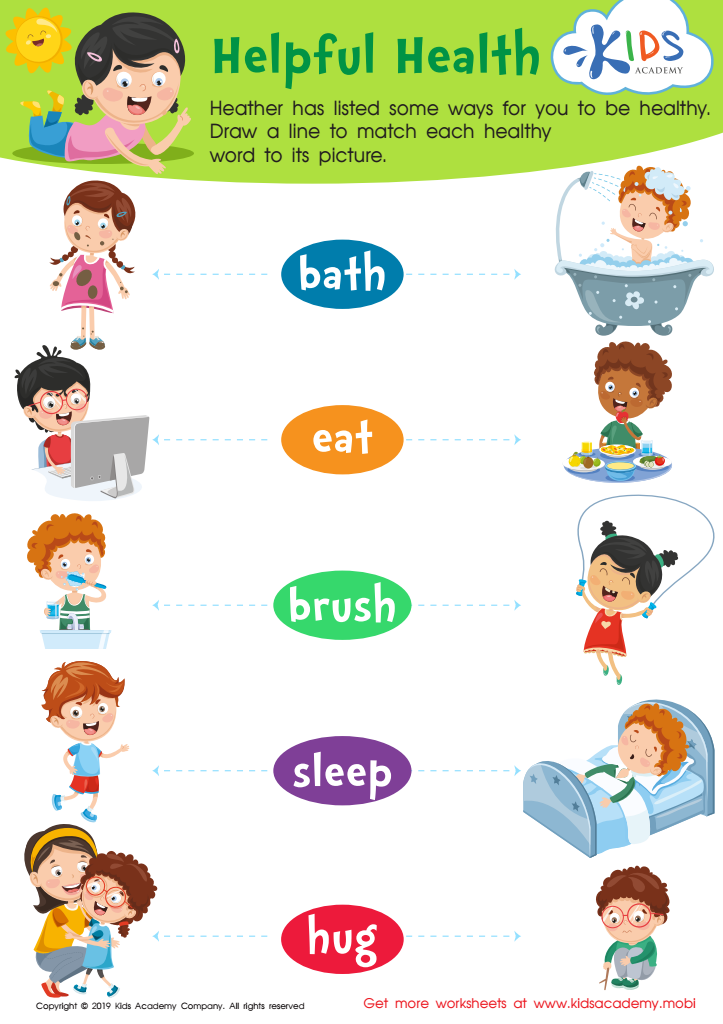

Helpful Health Worksheet
Logical reasoning and normal reading skills are critical for children aged 5-7, as this is a key developmental stage for cognitive and language abilities. Parents and teachers should prioritize these skills because they form the foundation for lifelong learning. Logical reasoning helps children recognize patterns, make connections, and solve problems, skills that are essential not just in academics but also in daily life.
During these formative years, children's brains are particularly receptive to new concepts. Engaging in logical reasoning activities—such as puzzles, games, and open-ended questions—can enhance their critical thinking skills and promote creativity. Simultaneously, normal reading development supports language acquisition, literacy, and comprehension, enabling children to express themselves and understand the world around them.
Furthermore, strong reading skills are linked to academic success across subjects, providing emotional and social benefits by promoting independence and confidence. When parents and teachers foster these skills collaboratively, they create a supportive learning environment that nurtures curiosity and fosters a love for learning. In essence, prioritizing logical reasoning and reading in young children equips them with essential tools for effective communication, problem-solving, and reasoning throughout their educational journey and beyond.
 Assign to My Students
Assign to My Students




